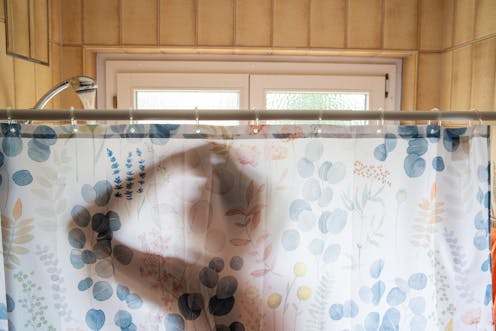These 3 simple actions can save you money and help make the most of your rooftop solar
- Written by The Conversation

Four million Australian households and businesses have rooftop solar installed, making us the world leader in the technology. Much of the electricity generated is used to power our homes, and any leftover is fed back into the grid.
Sometimes, the grid operator may need to turn down or switch off our solar systems, as they do other electricity generators. This is called “spilling” or “curtailing” excess generation. It can happen for various reasons, including when our solar panels produce more electricity than we use. Left unchecked, this might overwhelm the grid and cause blackouts.
You might have seen the issue in the news last week, when the Australian Energy Market Operator announced electricity distribution networks must develop a way to curtail rooftop solar as a last resort in emergency situations.
Curtailment is not a sign the grid isn’t working properly. It’s an expected and efficient feature of a system powered by renewable energy. And the market operator already has curtailment powers in some states.
But most households and businesses are paid for the electricity they feed back into the grid. So if rooftop solar were to be regularly curtailed, it would reduce this return on investment.
So, here we outline three simple, effective ways to stop your solar electricity going to waste.
1. Get the right-sized system
If you don’t yet have rooftop solar installed, or you are replacing your system, make sure it’s the right size for your needs.
A system that is too large means you’ll produce more electricity than your home will use. But also consider your future needs, and whether you may need more electricity to power more electric appliances.
The SunSPOT calculator can help you identify which size solar system suits you best. It was built by photovoltaic engineers and data analysts from UNSW’s School of Photovoltaic and Renewable Energy Engineering and not-for-profit solar research organisation the Australian PV Institute.
The calculations are based on your electricity use and rooftop size. They also account for factors such as local sun and weather patterns, shading from nearby structures and features of your roof. It can also estimate the potential savings from adding various batteries to store your excess solar electricity.
2. Use appliances when the sun is out
Households can use more solar electricity by running or charging electric appliances when the sun is shining. This becomes even more relevant as consumers increasingly replace fossil-fuel technologies, such as gas water heaters or petrol-fuelled cars, with electric versions, and as appliances become easier to control.
Electric hot water systems, which heat and store hot water, can consume up to 30% of a household’s energy. A recent trial of 18,000 households showed half this energy could be used to heat water during the day rather than at night, with no noticeable change for households.
The same principle applies to other electric-powered technology such as pool-pumps and electric vehicles.
Even those without rooftop solar can benefit from this practice. Some electricity retailers now offer “solar sponge” plans whereby electricity is cheaper – or even free – in the middle of the day to make use of all the low-cost solar feeding into the system.
But not all electricity retailers currently offer these plans.
3. Join a ‘virtual power plant’
Virtual power plants are basically mini power stations. They combine thousands – and perhaps eventually even millions – of small energy resources such as rooftop solar, batteries and hot water systems.
These resources can either feed in electricity to, or draw electricity from, the grid as needed. Participating households are paid if they respond to signals from the virtual power plant.
Two major trials of virtual power plants finished this year, in Western Australia and Victoria.
Both demonstrated that, if orchestrated well, virtual power plants can lead to lower electricity costs for everyone. That’s because they avoid the need to build expensive infrastructure to generate or distribute electricity from elsewhere – a cost usually passed onto consumers.
But such initiatives also face challenges. Research shows some households are reluctant to participate. Their reasons include concerns about losing control of (or harm coming to) their appliances, less secure electricity supply, or being exploited financially.
These concerns must be addressed before virtual power plants can deliver on their promise.
We can all help save our solar
Soaking up more of our solar electricity is good for both households with rooftop systems and other electricity consumers. Even small actions, such as choosing the right rooftop solar set-up or changing when we use electricity, can make a big difference.
With just a few shifts to our energy habits, we can contribute to a low-emissions future and help spread economic benefits to all.







